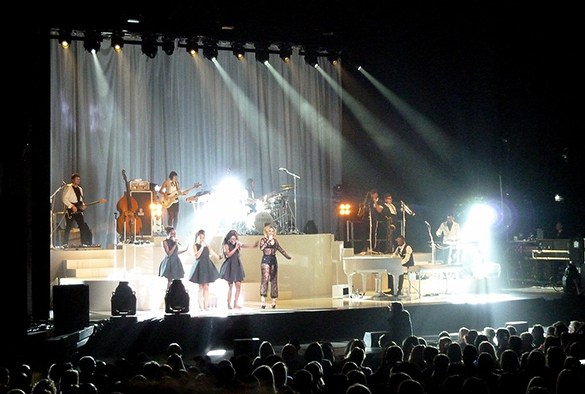
Image by Fraser Mummery (CC)
A University of Liverpool study seeking to determine the public health cost of the loss of access to arts and culture across Liverpool City Region (LCR) during the COVID-19 pandemic and lockdown, is appealing for your views.
The COVID-19 CARE: Culture and the Arts, from restriction to enhancement: Protecting Mental Health in Liverpool City Region project is being led by Professor Josie Billington, in the University’s Department of English, and Dr Katia Balabanova, in the University’s Department of Communication and Media.
Dr Josie Billington said: “Re-igniting the cultural life of Liverpool, and of all UK cities and their regions, by repairing their cultural infrastructure through re-investment will be a key post-pandemic challenge.
“It is a challenge that might risk low prioritisation, however, if arts and culture are deemed a relative privilege or luxury when weighed against the urgent need to address economic and social deprivations.
“Our study aims to provide the evidence for the cost to public mental health of the loss of arts and cultural goods. It will also assess the value of successful innovations in mental health outcomes and the risks of exclusion from new patterns of provision.”
If you are 18 years old or over, you are invited to participate in this survey seeking to understand experiences of arts and cultural activity in Liverpool City Region by clicking this link: https://liverpoolcommsmedia.fra1.qualtrics.com/jfe/form/SV_abKDP3T6rauBdmR
Funded by UKRI/AHRC Rapid Response Fund and building on the University’s strong alliance with organisations across the arts and cultural sectors, the project brings together an interdisciplinary team of arts and mental health researchers.
The research began with online interviews with civic cultural institutions and community arts programmes to gather views about the impact of COVID-19 on public access to arts provision and the success of alternative – for example online and digital – modes of provision in reaching and communicating with established and/or new audiences.
The survey all adults in the LCR are being invited to complete aims to capture the impact on mental health of restricted access to usual arts provision and the perceived value, accessibility and impact of alternative arts provision.
Liverpool has one of the richest concentrations of culture in the UK, boasting the largest clustering of museums and galleries outside London. Cultural capital is critical to the city region’s economy, contributing an estimated 10% (Culture Liverpool, 2019). The city also has a pioneering history of harnessing arts for mental health care through partnerships between culture and health providers.
Professor Billington and Dr Balabanova are supported by post-doctoral researchers, Dr Megan Watkins and Dr Joanne Worsley.